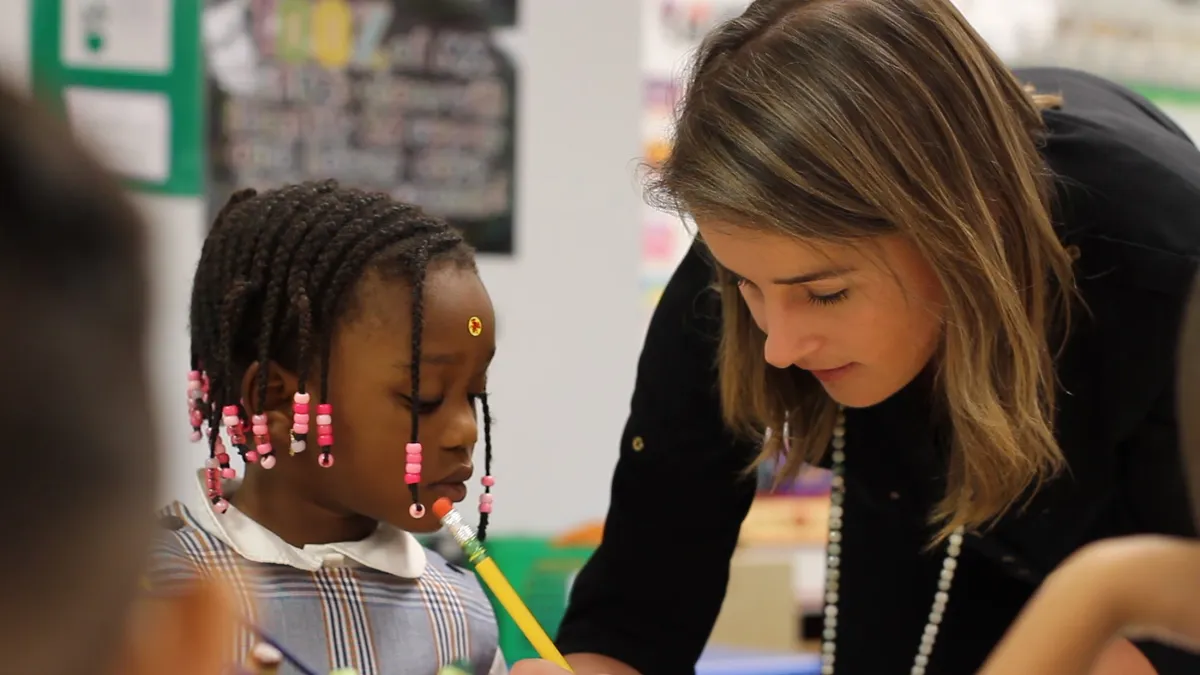Louis Soares is the chief learning and innovation officer at the American Council on Education.
Right now thousands of college students are scrambling to adjust to life off-campus and outside of physical classrooms. That in and of itself is a challenge for any student, but K-12 school closures and government orders mean that student parents are also home with their children — disrupting schedules and child care at a time when they may also be facing uncertainty in employment and economic instability.
Students like Becca Leslie, who told The Seattle Times that she's not sure how she'll be able to complete her classes while also taking care of her children. She's concerned about affording rent and child care and is worried about losing money from her work-study job.
The global pandemic has caused unprecedented uncertainty across our cities, communities and homes, and student parents are one of the most impacted groups, as they are feeling the effects of the unfolding challenges at every level. Their needs have never been more acute. This will likely extend many months beyond the current crisis, which is why we need innovative solutions for student parents now more than ever.
Around a quarter of all undergraduate students in the U.S., and millions more in postsecondary programs, are parents. These "post-traditional" students do not fit the "traditional" mold of the 18-year-old who is financially dependent on their parents and enrolled in a four-year college degree program. Student parents are uniquely motivated — pursuing a better life for themselves and setting an example for their children.
Alongside their school course loads, student parents are managing child care obligations, work schedules and other personal or professional obligations. Consequently, they exhibit a longer, more episodic demand for higher education on the journey to complete a credential or degree program. Student parents often face admissions, academic, financial aid and advising systems not well-suited to meet their needs. Despite these system limitations, student parents, on average, achieve higher GPAs than their peers who don't have children. They enrich their classrooms with new perspectives, ideas and challenges. Too often, however, these millions of learners are being forced to fit into a postsecondary education system that wasn't designed for them or the life experiences and circumstances they bring.
We can do better.
Even as colleges and universities weather this current crisis, higher education could lay the foundation for a more adaptable and resilient set of services that can better serve student parents — and perhaps all postsecondary learners. Services that encompass innovations including:
- Rolling admissions with modular, easy-to-access instruction.
- Blended academic and occupational curricula.
- Stackable credentialing of knowledge and skills.
- Integrated financial, academic and career advising.
- Policies that reflect the complex task of balancing life, work and education.
As is often the case in higher education, there are models of such innovations that can be adapted to different settings to better serve student parents.
Institutions like the City University of New York's Borough of Manhattan Community College, which has an Early Childhood Center focused on helping student parents continue their education on campus. The University of California, Berkeley provides the Student Parent Center, which offers a one-stop campus resource for parents, allowing them to network, get advice, participate in study groups and get general support from other student parents. And, in Massachusetts, Bay Path University's SOUL (Social Online Universal Learning) platform supports women learners with children by combining analytics with personalized instruction and support services to increase completion rates.
These innovative practices, at scale, are still in the proof-of-concept stage. Further investment is needed to more deeply explore their effectiveness and portability. That's why the American Council on Education is partnering with Imaginable Futures and Lumina Foundation to bring awareness to the Rise Prize, which is seeking to support innovations that meet the challenges student parents face in their postsecondary journeys by offering awards to programs, institutions and other organizations that are working on tools, programs or initiatives that support student parents to succeed.
Paradoxically, addressing the needs of student parents may be a key to innovations that unlock and enhance college and university performance, enable better student outcomes and close equity gaps. This current crisis is summoning our most creative and courageous selves to help student parents succeed and, in doing so, make higher education a key to national resilience.

















